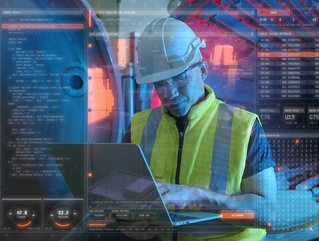Intuita and Crate.io on the power of AI and manufacturing

The internet of things (IoT) can be extended into the industrial sector to enable better efficiencies and reliability in operations. Used in industrial settings, the industrial internet of things (IIoT) can be used in unison with artificial intelligence (AI) to enable manufacturers to manage the influxes of data collected by the smart sensors and devices to support operations.
Peter Jackson, Chief Strategy Officer at Intuita Consulting spoke to AI Magazine about the benefits of IIoT in manufacturing, he commented: “The immediate benefits are around real-time monitoring and predictive maintenance, which should lead to the increased lifespan of machinery and less downtime.”
Outlining some more key benefits, Eva Schönleitner, CEO of Crate.io listed:
- Helps assure product quality in real-time
- Reduces cost and waste
- Enables predictive maintenance on machines to be performed even before issues occur
- Measures and optimises production practices
- Supports key strategic initiatives including safety and sustainability targets.
She adds: “IIoT in the first place creates large amounts of data coming from a vast array of sensors and machines, so big data approaches are needed to manage and utilise the amount of data that is being generated. But simply managing this data does not offer any benefits to begin with and gaining insights from large amounts of data remains a challenge.”
“Operational analytics and also advanced machine learning techniques are being utilised to derive insights and provide actionable results of the data generated by Industrial IoT sensors. These technologies can be utilised to improve production output, quality, or help with services like predictive maintenance. Leveraging big data and machine learning allows us to derive insights faster and act on them, helping to keep machines running and output at a high level and high quality. Manufacturers can now affect the control loop, which is the live operations of the production processes,” she added.
Harnessing the power of AI and IIoT in manufacturing
The power of AI is being recognised across industries, by integrating this technology with IIoT sensors and devices Jackson outlined how it could progress this technology to the benefit of the manufacturer: “The use of AI could be deployed to come up with better ways of working by analysing how a product is made and developing new machinery or processes which drive efficiencies, although we are sometime off this being a reality.”
“Real challenges still stand in the way of deploying true AI in a factory setting, from ensuring connected devices collect data accurately to deploying an infrastructure that can ingest, process, store and analyse vast quantities of diverse IoT data in real-time,” he continued.
Despite these challenges, the technology promises to bring automation opportunities faster than ever before. By utilising AI, machines can react based on information much quicker and the combination of this with IIoT will give manufacturers a competitive advantage.
“Detecting production failures and machine failures becomes quicker and AI can automate remedies without needing an operator to monitor the machine and have a manual intervention. This provides options to save on labour costs while still maintaining or even increasing production output and production quality with close monitoring from IIoT sensors and AI to analyse the data and take the appropriate actions before failure occurs,” said Schönleitner.
As with many new technologies, both AI and IIoT are costly for the manufacturing industry, due to this, Jackson concluded: “It’s important to build an infrastructure that ensures you are only processing the data required for any ML or AI applications in order to control costs, whilst ensuring unused data is continually assessed in case it has value for future use cases that may drive efficiencies.”






